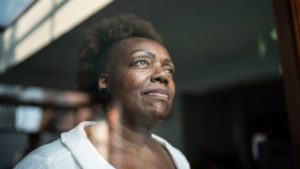Starbucks said Wednesday it has resolved allegations from the Equal Employment Opportunity Commission about alleged racial bias in its employee promotions, based on data from 2007 through 2011.
In a letter to employees, CEO Kevin Johnson said that Starbucks does not know what prompted the EEOC allegations and that the company’s analysis of its own data did not show systemic discrimination in store-level promotions.
“The agreement is not only the right thing for partners, it has also led us to focus more resources on structural changes necessary to support partners’ career progressions and ensure that every partner has the opportunity to learn about promotion opportunities,” Johnson wrote.
The agreement with the federal agency was disclosed in Starbucks’ third annual civil rights assessment from the law firm Covington & Burling. The law firm said in the report that it did not represent Starbucks in the matter or independently investigate the allegations.
A Starbucks spokesperson said that the company was engaged in on-and-off dialogue with the EEOC before reaching the agreement earlier this year. The spokesperson declined to comment on whether there was financial penalty, citing the confidentiality of the legal matter.
To make the promotion process for cafe employees more formal and transparent, the company is developing an application tracking system that shows all retail job postings and includes ways to track data. Store managers will no longer be able to promote workers outside of the formal promotion framework, and the company is rolling out new training for leadership involved in hiring decisions, including new interview guides.
The responsibilities of Starbucks’ inclusion and diversity team will expand to include overseeing compliance and analytics and ensuring that diversity goals play a role in making business decisions. The company has also hired an independent labor economist to analyze data, create promotion goals and track its progress in achieving those targets.
The company first commissioned a civil rights assessment from Covington & Burling in 2019, months after police arrested two Black men who hadn’t ordered yet at a Philadelphia cafe. The backlash that resulted from the incident led the company to close all of its company-operated locations for a day of training on racial bias and to make stronger commitments to be more inclusive.
In the wake of the Black Lives Matter protests that began in late May last year, Starbucks made additional commitments to stand up for racial justice and equity, including in its own workplace. It updated its “third place policy,” including adding specific examples of unacceptable behavior, like hate speech or racial slurs, and provided deescalation training to baristas. In October, Starbucks said that it would tie executive pay to new diversity targets. Earlier in March, Starbucks promoted Dennis Brockman to the role of global chief inclusion and diversity officer.




